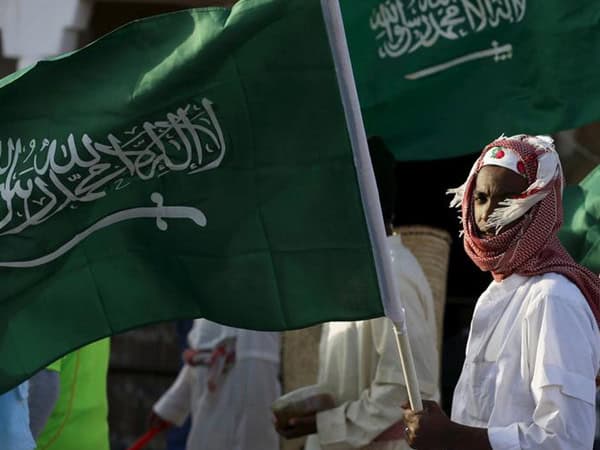Cairo: Saudi Arabia warned today that it would not stand idly by in the face of Iranian “aggression”, as Bahrain said the Iran-backed Hezbollah movement was “in total control” of Lebanon.
The foreign ministers of both Gulf states spoke at an extraordinary general meeting of the Arab League at its Cairo headquarters, called by Riyadh.
The Arab League meeting comes as tensions soar between regional arch-rivals Saudi Arabia and Iran, including over League member Lebanon.
Sunni Muslim powerhouse Saudi Arabia and Iran, the predominant Shiite power, have for decades stood on opposing sides of conflicts in the Middle East including in Syria and Yemen.
Saudi Foreign Minister Adel al-Jubeir warned Iran that Riyadh will not stand idle in the face of Iranian “aggression”.
Saudi Arabia “will not hesitate to defend its national security to keep its people safe”, Jubeir said in opening remarks at the meeting.
“I trust the League’s council will take on its responsibility and take a decision regarding Iranian violations of Arab security,” he said ahead of today’s talks.
Bahrain’s Foreign Minister Sheikh Khalid bin Ahmed Al- Khalifa said the Shiite Hezbollah movement in Lebanon was “in total control” of the country.
“Iran’s biggest arm in the region at the moment is the terrorist Hezbollah arm,” he said.
He added that Hezbollah “does not just carry out operations inside the borders of (Lebanon), it also crosses its borders to all of our nations”, making it “a threat to Arab national security”.
He called on countries “where Hezbollah is a partner in government to carry their responsibility”.
“The Lebanese Republic, in spite of our relations with it as a brotherly Arab nation… is under the total control of this terrorist party,” Sheikh Khalid said.
Riyadh called the ministerial meeting to discuss “violations” by Iran after a missile was intercepted near Riyadh in a November 4 attack claimed by Shiite Huthi rebels in Yemen.
The ministers were also due to discuss a pipeline fire in Bahrain on November 10, accusing Iran of responsibility.
Saudi Arabia’s powerful Crown Prince Mohammed bin Salman has accused Tehran of “direct military aggression” against the kingdom by supplying the Yemen rebels with ballistic missiles, but Tehran has denied any involvement.
Bahrain and the United Arab Emirates supported the Saudi request for the extraordinary meeting, which was also approved by Djibouti, the current chair of the pan-Arab bloc, according to a memorandum seen by AFP.
Saudi-Iranian tensions have escalated over Lebanese Prime Minister Saad Hariri’s shock resignation, also on November 4, in a statement from Riyadh in which he cited Iran’s “grip” on his country and threats to his life.
Lebanon’s foreign minister did not attend today’s session, but Beirut’s permanent representative was present.
For more than a decade, Lebanon’s political class has been largely split between Iran-backed Hezbollah and its allies, and a Saudi-supported coalition led by Hariri.
In Syria, Hezbollah has fought to defend the government of President Bashar al-Assad, also an ally of Iran.
Saudi, Bahrain target Iran at Arab League meeting

